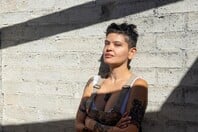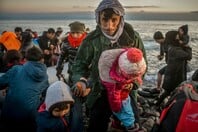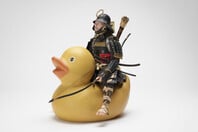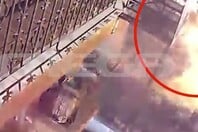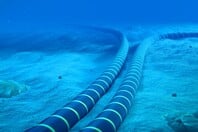"ούτε αφορά ιστορικά την χώρα μας"ε... όχι και δεν την αφορά, αγαπητέ μου. Δεν μιλάμε για τις σχέσεις μας με το αρχιπέλαγος Βανουάτου. Μην λέμε ό,τι θέλουμε! (ο εχθρός του φίλου μας, είναι και δικός μας εχθρός, ένα πράγμα)GREECE -SERBIA RELATIONSAssistance to Bosnian Serbs and Republika SrpskaAccording to University of Amsterdam professor 'C. Wiebes', the Hellenic National Intelligence Service (EYP) systematically sabotaged NATO operations in Bosnia in the mid-1990s, in an attempt to aid Bosnian Serb nationalists. In his report for the Dutch government, entitled Intelligence en de oorlog in Bosnie 1992-1995, Wiebes claims that EYP leaked classified NATO military plans (to which, as an allied intelligence service, it had access) to the Serb Bosnian leadership, and often to General Ratko Mladić himself, during the summer of 1995. Eventually, Wiebes states in the report, NATO allies ceased sharing NATO military plans with the Greek authorities.In August 2008, a group of lawyers from Chania, Crete, Greece, visited ICTY Indictee Radovan Karadžić and offered their services for free and have asked international organizations to ensure a just trial for the former Bosnian Serb President.SrebrenicaAccording to Agence France Presse (AFP), a dozen Greek volunteers fought alongside the Serbs at Srebrenica.They were members of the Greek Volunteer Guard (ΕΕΦ), or GVG, a contingent of Greek paramilitaries formed at the request of Ratko Mladić as an integral part of the Drina Corps. Some had links with the Greek neo-Nazi organisation Golden Dawn, others were mercenaries. The Greek volunteers were motivated by the desire to support their "Orthodox brothers" in battle.[17] They raised the Greek flag at Srebrenica after the fall of the town at Mladić's request, to honour "the brave Greeks fighting on our side." Radovan Karadžić subsequently decorated four of them."In 2005 Greek deputy Andreas Andrianopoulos called for an investigation of the Greek volunteers' role at Srebrenica. The Greek Minister of Justice Anastasios Papaligouras commissioned an inquiry, which had still not reported as of July 2010.(...)FootballUltras BrotherhoodsMany Greek and Serbian football clubs share ultra brotherhoods. Serbian FK Partizan and Greek PAOK FC are known "brother-teams" as they both play in black-white uniform, and their biggest enemies in the Greek and Serbian derbies are respectively, Red Star Belgrade and Olympiacos, who both play in red-white jerseys.The main supporters of Red Star Belgrade are the Delije Ultras, while the Olympiakos supporters are called Gate 7 Ultras, their slogan is "GATE 7 - DELIJE. Orthodox Brothers" and both teams wear the colours red and white. The main supporters of Partizan Belgrade are the Grobari Ultras, while the PAOK FC are called Gate 4 Ultras, their slogan is "Black & White. Same colour - Same faith" (Serbian: исте боје - иста вера, Greek: Ίδια χρωματα - ίδια θρησκεία) and both teams wear the colours black and white. Both groups often display Byzantine Empire and Orthodoxy symbols as icons of their friendship(από το λήμμα της wiki)___________Εξυπακούεται, όμως, ότι θα έπρεπε να γίνουν οι αντίστοιχες έρευνες να διαπιστωθεί ποια ήταν αυτά τα "ταραχοποιά" στοιχεία,Εδώ πιο αναλυτικά:http://www.cnn.gr/news/sports/story/54488/pk-2018-apeiloyn-oi-vosnioi-gia-to-ethnikistiko-pano-sto-karaiskakis






